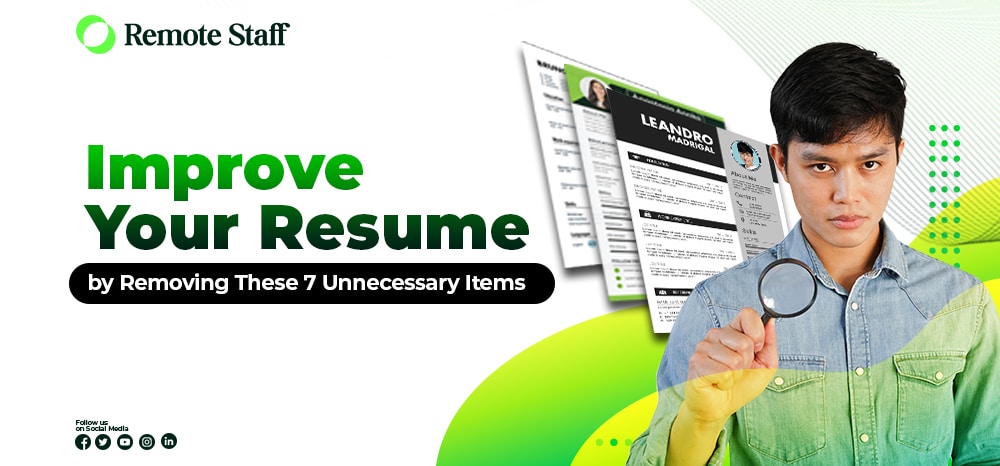A challenging part of resume writing is making sure it’s concise and straight to the point. Doing this is one of the best practices when resume writing, as it makes it easier for your employer to read. However, one common mistake still made by applicants is cramming all there is to know about them in their resumes.
But like any good advertisement, your resume must not bore your employer by being lengthy and tiring to read. Remember, your application isn’t the only one your employer is viewing. You must ensure it immediately catches their eye and raises their interest in you.
So, how do you start improving your resume? Obviously, you should begin by removing all the unnecessary parts of it. But which ones do you omit? To help you with this, here are seven unnecessary items you should remove during resume writing to boost your resume.

Your Professional Photograph.
Yes, you read that right. One of the first things you should remove from your resume is the 1×1 or 2×2 professional photo you’ve attached to it. No, it’s not because you’re ugly. It’s because showing a picture of yourself when you’re not required to can make you look unprofessional in the eyes of your potential employer.
Additionally, showing a picture of yourself can also lead to potential discrimination, intentional or not, on the side of your employers. This could negatively affect your chances of getting hired, despite your qualifications. To avoid this issue, simply omit your professional photo from your resume, and submit one only when you’re required to.
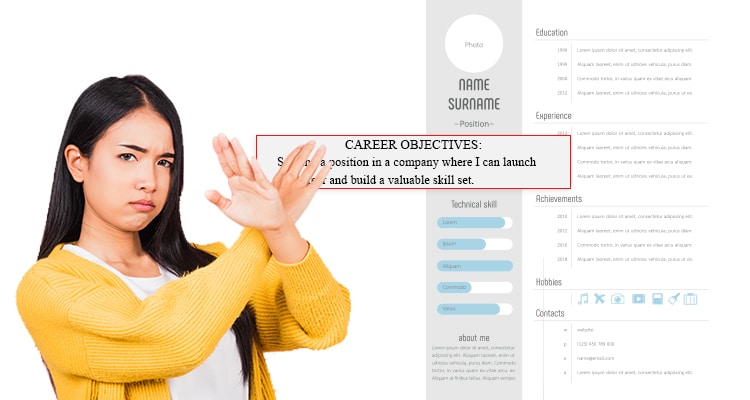
Career Objectives.
Another item that you should remove when resume writing is your career objectives. To be honest, I was also surprised when I learned this. Turns out stating what your goals are for getting a job is pointless when your potential employers know you’re there because you need a job. So why bother waste space including this in your resume?
So instead of your career objectives, why not give a short summary of your qualifications and skills? Instead of browsing your entire resume to see your credentials, your potential employers can just read your summary.
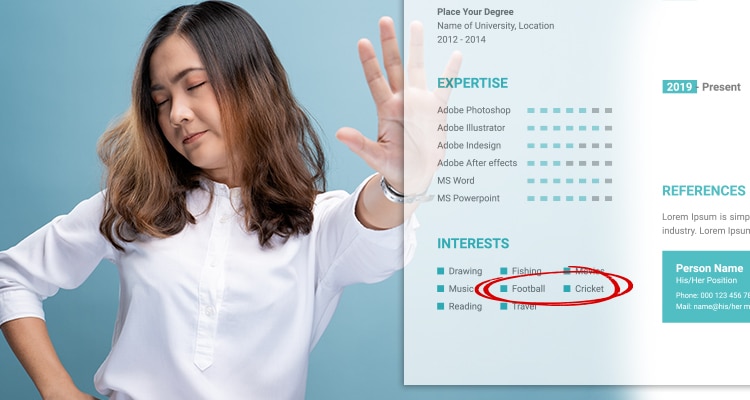
Hobbies and Interests Unrelated to the Job.
Here’s another tip to boost your resume and make it more concise: don’t include interests or hobbies unrelated to the job you’re applying for. But isn’t this part of your resume there to help your employer know you better?
Let me be honest with you, your employer doesn’t really care what you do outside of work. What they’re more concerned about is your ability to do your job. So, to make their jobs (and your resume writing) easier, just list down your hobbies or interests related to the job you’re applying for.
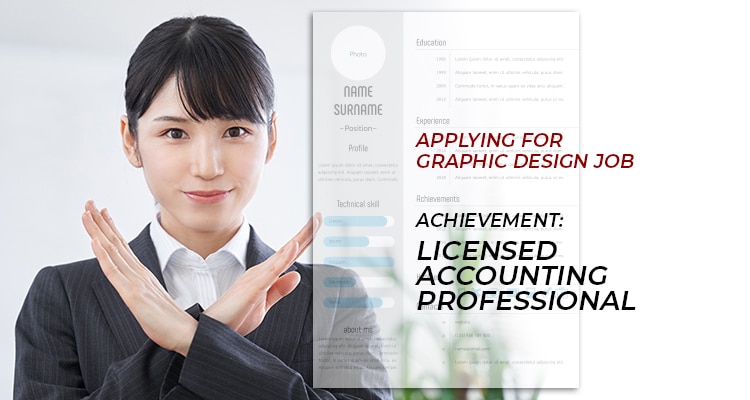
Achievements Not Relevant to the Job.
The best way to make a great first impression on your resume is by having an impressive list of achievements. Although this is very much true, this only applies if the accomplishments you’ve listed are relevant to the job you’re applying for.
Including achievements that are not relevant to the job you’re applying for not only wastes your employer’s time but makes you look desperate too. To avoid this, only include your achievements related to the job you’re applying for. Yes, even if these aren’t many. It’s better than leaving a bad image of you on your employer, right?
You may then ask, “What if this is my first job? What should I put in my list of achievements?” In that case, you can put here your awards from school relevant to your job.
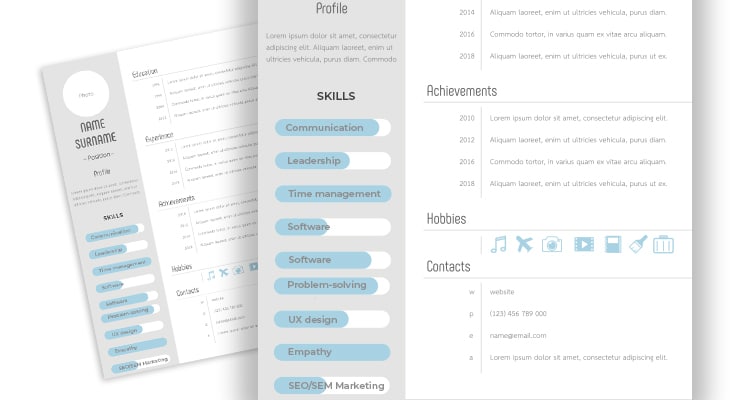
Too Much Basic and Soft Skills.
An essential part of every good resume is a list of your skills. This list is among the first things your employer will look at when reading your resume. In that case, you should list down all your skills, right?
Wrong. Including too much soft and basic skills in your resume is a big turn-off to your potential employers. It tells them you don’t have much to bring in terms of work skills. Let’s be fair; it’s okay to add proficiency in Microsoft Office tools to your resume. But if that’s the only thing you have, we have a problem.
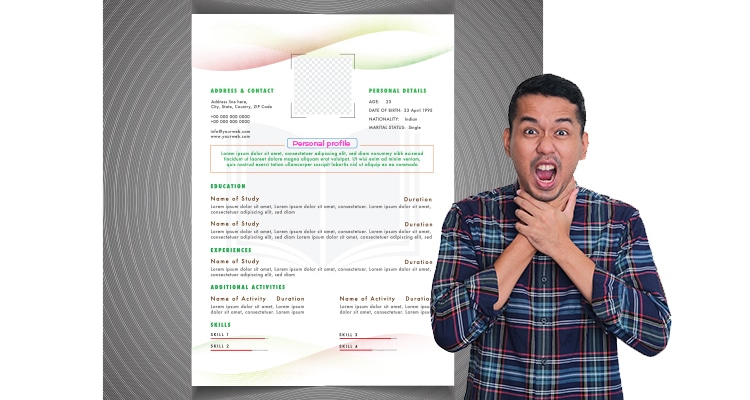
Overly-fancy Fonts or Formats.
Next, let’s talk about which fonts and formats to use when resume writing. Don’t mistake adding fancy fonts and italics as a sign of quality, as these only serve to make your resume more difficult to read. If your potential employer can’t read your resume, what makes you think they’ll consider you for the job?
When writing your resume, remember that simple is better. Having an easy-to-read font helps your potential employer retain what you’ve written in your resume. Also, when using formats, use them to highlight the information you want your employer to focus on.
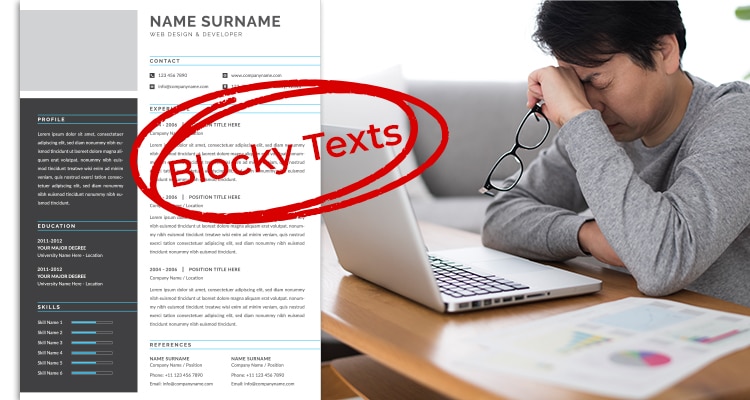
Blocky Texts.
Nothing is more annoying to read than big blocks of text, especially for an employer sifting through various candidates. Aside from wasting their time, it also makes retaining any information you write on your resume difficult.
To make everyone’s lives easier, simply write your essential information in your resume. Remember, it’s a resume, not an autobiography. Also, try to use more bullet points; so your resume is easier to read.
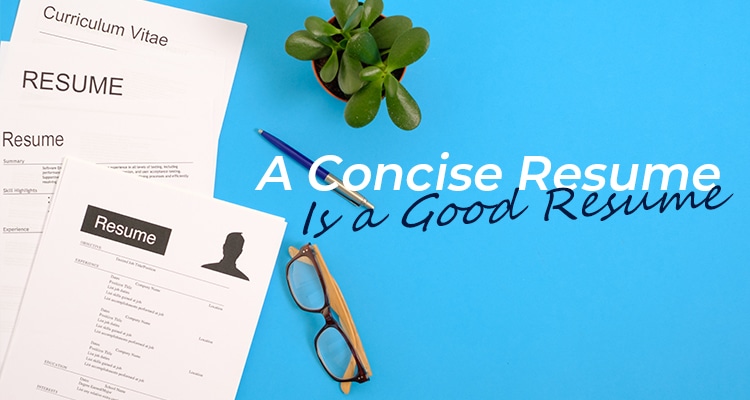
A Concise Resume Is a Good Resume.
Resume writing is a challenging activity. It’s not easy to sit down and write what is essentially self-advertisement as concisely as you can. But by removing the following items in your resume, you will have an easier time constructing the perfect resume for the job you’re applying for.
I hope this article helps you in your resume writing. If you’re having trouble finding the perfect job openings, you can check out Remote Staff for work opportunities.

